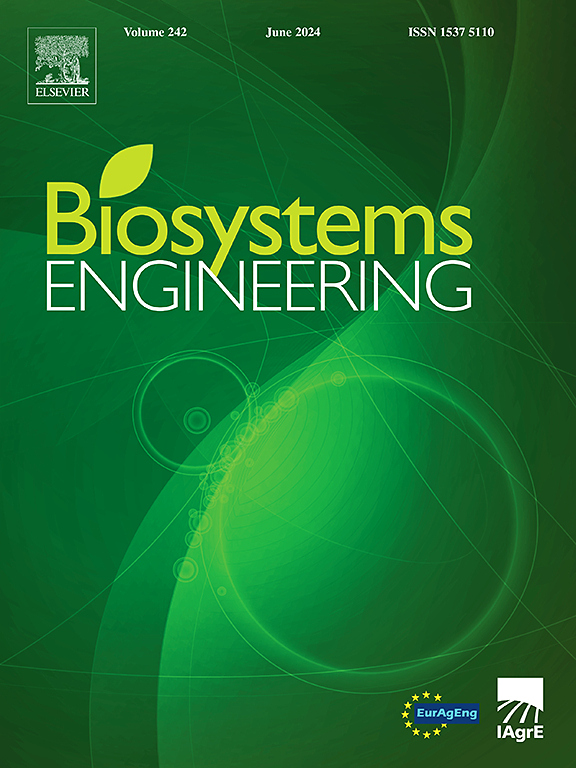智能灌溉技术综述
IF 5.3
1区 农林科学
Q1 AGRICULTURAL ENGINEERING
引用次数: 0
摘要
提供可靠的水源是本世纪的重大挑战之一。在作物上施用准确数量的水可以使用更少的资源大幅提高产量并减少环境足迹。目前的机械模型通过描述水如何在土壤、植物和大气之间转换来指导灌溉过程。新的方法利用了最近的技术融合(物联网、人工智能、大数据、优化方法),在考虑实际限制的同时,将农业测量转化为对作物需水量的准确估计。就全球农业而言,科技进步正朝着完全自动化的灌溉管理方向发展。然而,在这一前景成为现实之前,仍有一些复杂的挑战需要克服,首先要说服农民相信它的有效性。本文概述了过去和现在的灌溉实践以及智能灌溉的未来方向。它旨在为最先进的智能灌溉提供参考,并概述未来的可能性。从灌溉演变的阶段性观点开始,从问题和解决方案方面对现有文献进行了回顾,包括对需要克服的突出问题的讨论。本综述将数据驱动和机器学习模型确定为农民友好型(最终实现无农民灌溉)的关键推动因素,同时强调了传感器部署、农民采用和系统互操作性方面的持续挑战。本文章由计算机程序翻译,如有差异,请以英文原文为准。
A review of Smart Irrigation
Providing reliable access to water is one of the critical challenges of this century. Applying the exact amount of water over the crops may substantially increase yields using fewer resources and reduce the environmental footprint. Current mechanistic models guide the irrigation process by describing how water transitions between soil, plants, and the atmosphere. New approaches take advantage of the recent convergence of technologies (Internet of Things, Artificial Intelligence, Big Data, optimisation methods) to transform agricultural measurements into accurate estimations of the crop's water needs while considering practical constraints. For global agriculture, scientific and technological advances are converging toward fully automated irrigation management. However, there are still complex challenges to overcome before this prospect comes true, starting by persuading farmers of its effectiveness. This paper provides an overview of past and current irrigation practices and future directions toward Smart Irrigation. It aims to offer a reference for state-of-the-art Smart Irrigation and outline future possibilities. Starting with a staged view of the irrigation evolution, the existing literature is reviewed in terms of problem and solution aspects, including a discussion on prominent issues to overcome. This review identifies data-driven and machine learning models as key enablers for farmer-friendly – and eventually farmerless – irrigation, while highlighting ongoing challenges in sensor deployment, farmer adoption, and system interoperability.
求助全文
通过发布文献求助,成功后即可免费获取论文全文。
去求助
来源期刊

Biosystems Engineering
农林科学-农业工程
CiteScore
10.60
自引率
7.80%
发文量
239
审稿时长
53 days
期刊介绍:
Biosystems Engineering publishes research in engineering and the physical sciences that represent advances in understanding or modelling of the performance of biological systems for sustainable developments in land use and the environment, agriculture and amenity, bioproduction processes and the food chain. The subject matter of the journal reflects the wide range and interdisciplinary nature of research in engineering for biological systems.
 求助内容:
求助内容: 应助结果提醒方式:
应助结果提醒方式:


